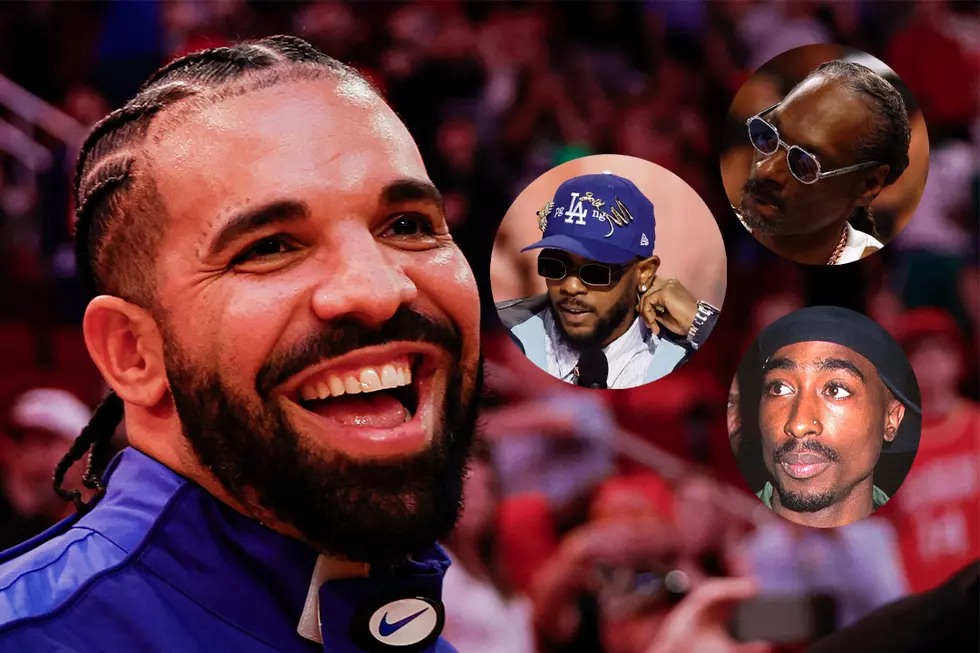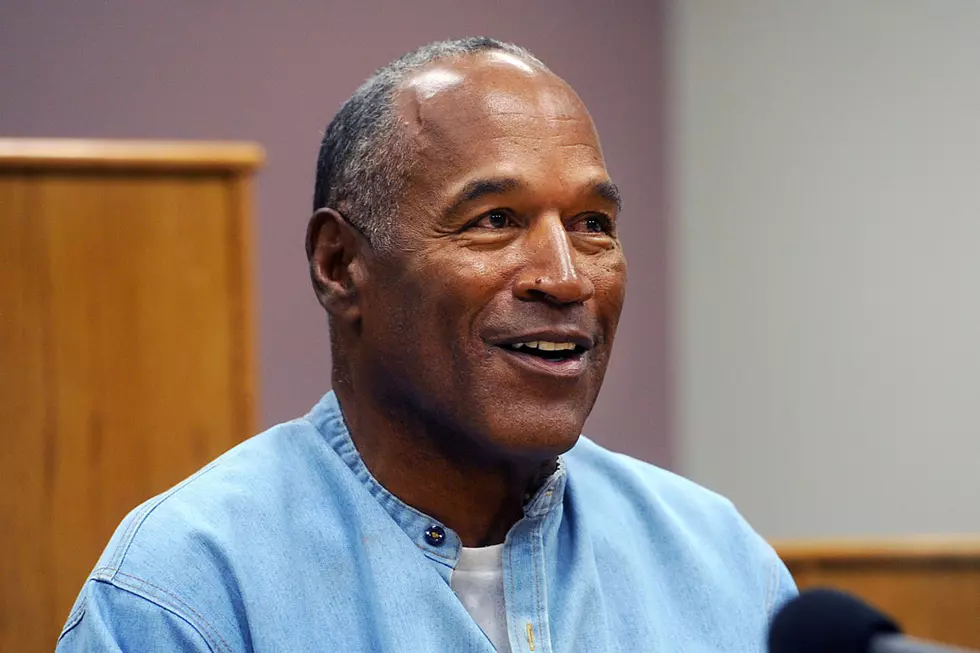![Changes: 2Pac’s Manager, Leila Steinberg [Feature From Sept. 2011 Issue]](http://townsquare.media/site/812/files/2011/08/Leila.jpg?w=980&q=75)
Changes: 2Pac’s Manager, Leila Steinberg [Feature From Sept. 2011 Issue]
When Leila Steinberg met a teenage Tupac Shakur in Marin City, California, in 1989, she couldn’t have predicted that he would become the biggest rap star in the world. But she knew she’d found someone special.
Growing up in South Central, Los Angeles, the daughter of a Polish defense-attorney father and a politically active Mexican mother, Steinberg was surrounded by the workings of the justice system. In 1987, at age 25, fueled by her desire to make a change in the educational system, she moved to the Bay Area with her husband, who was a DJ, and two children. It was there that Steinberg combined her love of music with a commitment to helping at-risk youth by developing a workshop for young poets and musicians that became known as the Microphone Sessions, which generated many of the poems found in Tupac’s posthumous book The Rose That Grew From Concrete. But all this stemmed from a chance meeting on a dance floor, where Tupac and Leila struck an instant bond that resulted in her managing his budding career. While their professional relationship ended in 1993, Leila remained a close friend until the legendary MC’s untimely death in 1996.
Currently focusing on her organization, AIM, or Alternative Intervention Models, which takes her to dozens of schools to teach emotional and financial literacy through the arts and athletics, Leila sat down with XXL recently to talk.—Nicole LoPresti
XXL: How did you meet Tupac?
Leila Steinberg: My husband was DJing at a club that was 21 and over, and ’Pac jumped in. I was dancing with a group of friends. The very next day, I saw him on the grass in Marin City. We probably never would have even talked to each other except that we saw each other on the dance floor the night before. I had a conversation with him, and I swear, I knew him many, many lifetimes. Once in a lifetime you make those connections.
People always talk about Tupac’s magnetism. Did you experience that?
Instantly. He was very, very attractive, with beautiful eyes. I thought he was older, because it was at nighttime, and he was in a club he should not have been in. I probably walked away from him because he was attractive. Even at eight or nine years older, I felt much younger than him. And so it didn’t even make sense to me that he was only 17.
What happened after?
I brought ’Pac home, introduced him to my family. I was only 25. I was a young mother. I’m not the Michelle Pfeiffer story. I’m not the White woman who comes to rescue the young Black male. So I want to really be honest in that I met ’Pac and absolutely fell in love with him instantly—and not sexually, but spiritually. I talked to him nonstop. I could’ve been with him 24/7, all the time, and was for a few years, because I felt like we were spiritual mates. But with ’Pac, none of what I ended up doing did I think I could do. It was Tupac who saw something in me. He also saw a confused mother wanting to be a great mother to my Black and mixed children, and it was almost like he was older than me.
So Tupac moved in?
’Pac lived with us on and off for about two and a half years. He had a room in our apartment.
How did Tupac help prepare you for your role as manager?
He made me the White woman that he needed me to be, when I needed to be that, or the Mexican woman who spoke Spanish. I was this weird combination of streets and activism and Whiteness and beauty. All the things I saw none of in myself. ’Pac said, “If you love me like you say, and believe in the cause, you will do this, and I will help you become the best mother to your mixed and Black children, because you will never ever understand.” And I was so in awe of this 17-year-old, telling me, a 25-year-old. But I said, “You’re right.”
And you became his manger.
Did I have any clue what I stepped into? Definitely not. And I disliked it tremendously. But management is much like mothering, where you have this strange relationship where there are no sensible boundaries and you go to work. The joke was that I was the campaign manager and he was running for office, and he thought he would be president one day. But we campaigned like that, and oh, my God, it was a good two years or more, every frickin’ day.
What was it like to be his manager? Did you have an actual contract?
When I first worked on all the early Tupac projects, my self-worth was so fucked up that I would take my name out of everything. I didn’t want to have such guilt for my privilege and my Whiteness. I was like, “Oh, every time there’s Black success, there’s a White person claiming it.” So, because I felt such guilt about the history, I couldn’t even value what I really did do and how I busted my ass every day for years. Even after ’93, when I wasn’t in any management or business capacity, I still was close to ’Pac, until the day he died. We still had these dreams, inspired by what we were gonna do and how he would help me, but he went from asset to liability. I never took money, even when I had a first legal, binding contract for management. I barely made $10,000 in 10 years, because every time I could make money, I felt—because I loved Tupac so much—if you’re doing it for love, you don’t take anything. So I never got points on record. I took myself out of all the liner notes. I have this horrible burden on me.
How did you juggle your family and your growing relationship and work with ’Pac?
I’m fighting with my husband because he’s accusing me of things that actually weren’t happening, you know? I can’t say that later, but some things didn’t happen, and I did love ’Pac. I wasn’t doing anything about it. I wasn’t expressing my feelings sexually, but that attraction existed. So I think that all artists have some sort of an attraction that work together. In that kind of intimacy, there’s always gonna be that. If I’m honest, actually, really say, yes, there was chemistry. Yes, I was attracted to him. Did I act on that when he was at our house or with us? No. Later did I? Yes. Not for any long period of time, but eventually you have feelings, and you express that. That was the most irrelevant thing in our relationship. We didn’t have a sexual relationship—we had sexual chemistry that fueled so much of the work and the writing we did together. ’Cause there is that dynamic energy when you love somebody like that. You’d go to the end of the world for them. But that’s not what I wanted with ’Pac. That wasn’t the source of our energy at all. But it did affect my marriage, affect my husband. That is one thing I absolutely feel terrible about, because I loved [my husband], but I was more focused on my work and distracting myself from my history and my pain.
What’s your take on Dexter Isaac’s recent admission of the 1994 Quad Recording Studios robbery?
It doesn’t surprise me whatsoever. I know that, when ’Pac got shot in New York, the reason he was furious is because he knew that whether he was set up by them or it was called by them, they could’ve, should’ve and would’ve known who did it. You wanna ask me if I felt a change? I knew that another turning point was after he did “Hit ’Em Up.” You can’t have battle calls and not know that the battle’s coming. I started crying when I heard that song. ’Pac, historically, has been able to write a song and change the whole mind-set at a given moment. He wrote “Brenda’s Got a Baby” and had us understand everything from incest to addiction differently. He wrote “Dear Mama” and had the whole generation calling to apologize to their mothers. And he wrote “Hit ’Em Up” and it was on and cracking.
**PICK UP THE SEPTEMBER 2011 ISSUE OF XXL, ON STANDS NOW**
More From XXL









